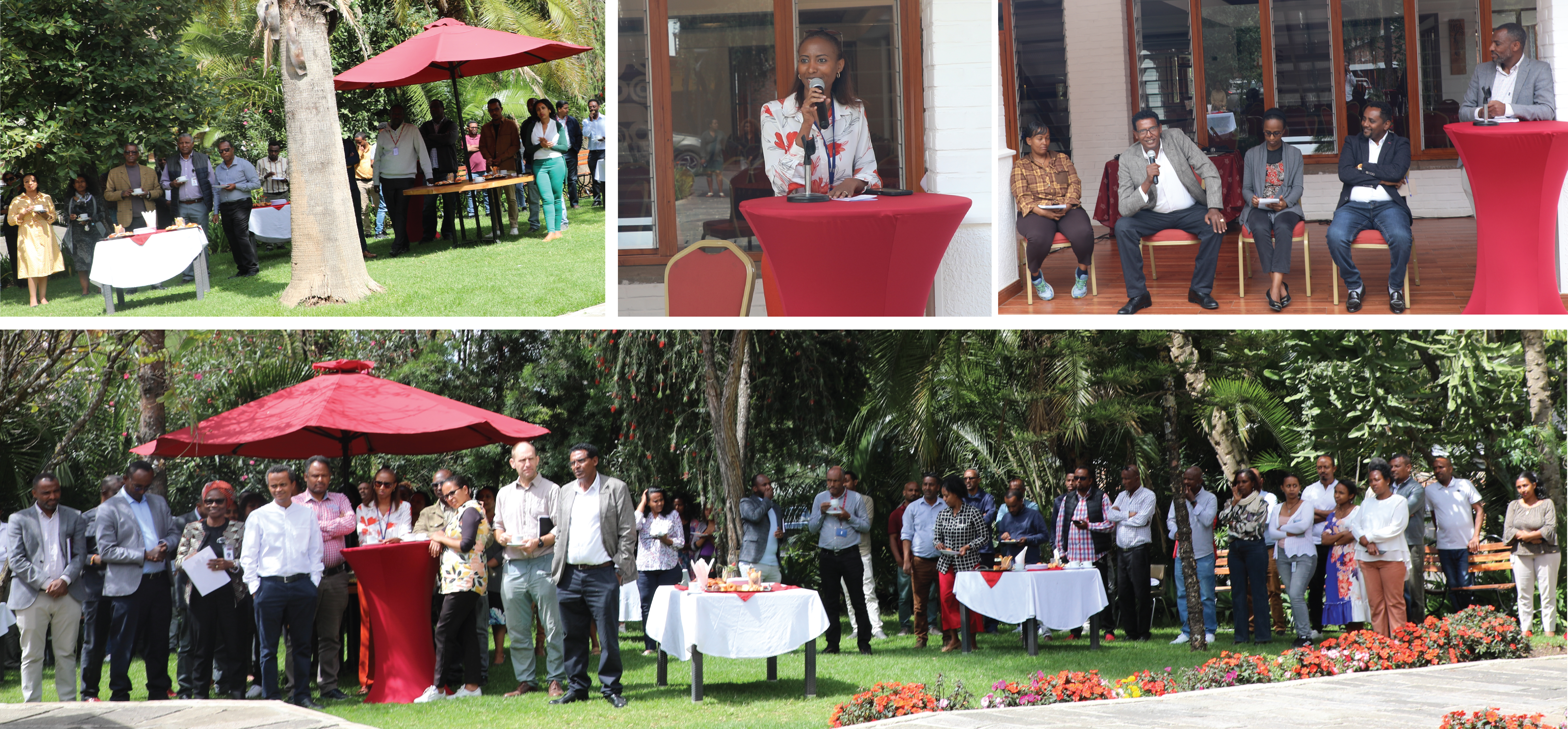
Empowering women through education and agriculture research and innovation
The CGIAR GENDER Impact Platform led a campaign across CGIAR to highlight progress made towards gender equality in the lead up to the 2024 International Women’s Day (IWD) 2024. The International Livestock Research Institute (ILRI) and CGIAR centres in Ethiopia participated in the campaign by drawing attention to initiatives and programs that are supporting women farmers’ empowerment in Ethiopia and beyond.
A special coffee ceremony was held on 13 March 2024 at the ILRI campus in Ethiopia to mark IWD 2024. The event brought together people from ILRI and other CGIAR centres in Ethiopia. Researchers and leaders shared their personal experiences and information on innovations to inspire others.
Namukolo Covic, ILRI Director General’s Representative to Ethiopia and CGIAR Ethiopia Country Convenor, opened the session by emphasizing the importance of empowering half of humanity to create a better world. She reminisced how her mother often said to her, ‘Namukolo, you go to school for both of us,’ to call attention to the importance of encouraging women to succeed.

‘We are celebrating international Women’s Day for all of us, men and women. Women and girls are our colleagues, our friends, our sisters, our mothers, our grandmothers, and our daughters. We celebrate all of them today. We are creating a better world for all of us by ensuring half of humankind is empowered!’
Meron Teferi Taye of the International Water Management Institute (IWMI) shared how her parents empowered her through education.
‘There was no distinction between men and women’s jobs and duties while I was growing up. I helped my father fix his car and things at home, and my mother in the kitchen.’
Taye’s hard work and the values her parents instilled into her helped her succeed.
She appreciated growing up in a household where education was treasured, and her father’s humble beginnings encouraged her to work hard in school.
‘My mother told me a girl must have her own income and be independent before she starts her own family.'
Other CGIAR scientists shared how research on livestock, water, crops, digital agriculture and climate resilience in food systems is empowering women and communities. ILRI’s Tadelle Dessie said that in 16 African and four Asian countries, the Tropical Poultry Genetic Solutions (TPGS) program is using poultry innovations to empower women economically and to provide better nutrition for their families. The program is making available the right poultry genetics to women farmers in their context and supporting them to engage in chicken frying businesses, among other enterprises.
‘Chicken are key for women because in smallholder systems chicken are owned, managed and sold by women…the income from chickens goes to women unlike that from larger livestock,’ said Dessie.
Innovations in a Community Based Breeding Program (CBBP) for sheep, fattening of sheep, and release of adapted and high-yielding crop varieties are also empowering Ethiopian women. Meseret Tsige Abebe, postdoctoral fellow at the International Centre for Agricultural Research in the Dry Areas (ICARDA), said their program is researching gender norms to understand their impact on women’s ability to adopt innovations to support their livelihoods.
‘We are conducting gender research to develop future gendered strategic pathways to economically empower women smallholders and transform gendered livelihoods,’ said Abebe.
Dessalegn Ketema, of the Alliance Bioversity-CIAT in Ethiopia, explained how research in digital agriculture is contributing to strengthening gender equality and social inclusion across food systems.
‘We are working with partners in supporting women to increase their agency, and acquire and gain control over resources.'
He added that gender-sensitive digital agriculture can help to accelerate social development processes.
The challenge of disproportionate impacts of climate change on women and gendered differences of access to water for productive use was highlighted by Likimyelesh Nigussie, gender research officer at IWMI. In an effort to empower and engage women, IWMI is collaborating with the Ministry of Agriculture in Ethiopia to co-revise the gender mainstreaming guideline of the ministry and to roll out a new gender equality strategy of the agriculture sector.
In conclusion, Covic reflected on the link between women and farming, child nutrition and the educational outcome of children, and how these in turn impact national economies (referring to the African Union Cost of Hunger study in Ethiopia in 2009). The African Union in partnership with the United Nations World Food Program has done such studies across several African countries and Ethiopia was one of the first showing that at the time the country was losing 16.5 per cent of its GDP due to undernutrition alone.
'We should celebrate International Women’s Day, every day, by reflecting on how empowering women is not only for themselves but for all of us - our countries, our economies, our continent and the world,’ concluded Namukolo.
Read more about ILRI and IWD2024 at ilri.org/iwd2024
For more information on linking nutrition and economic development see ‘Better living through nutrition’.





